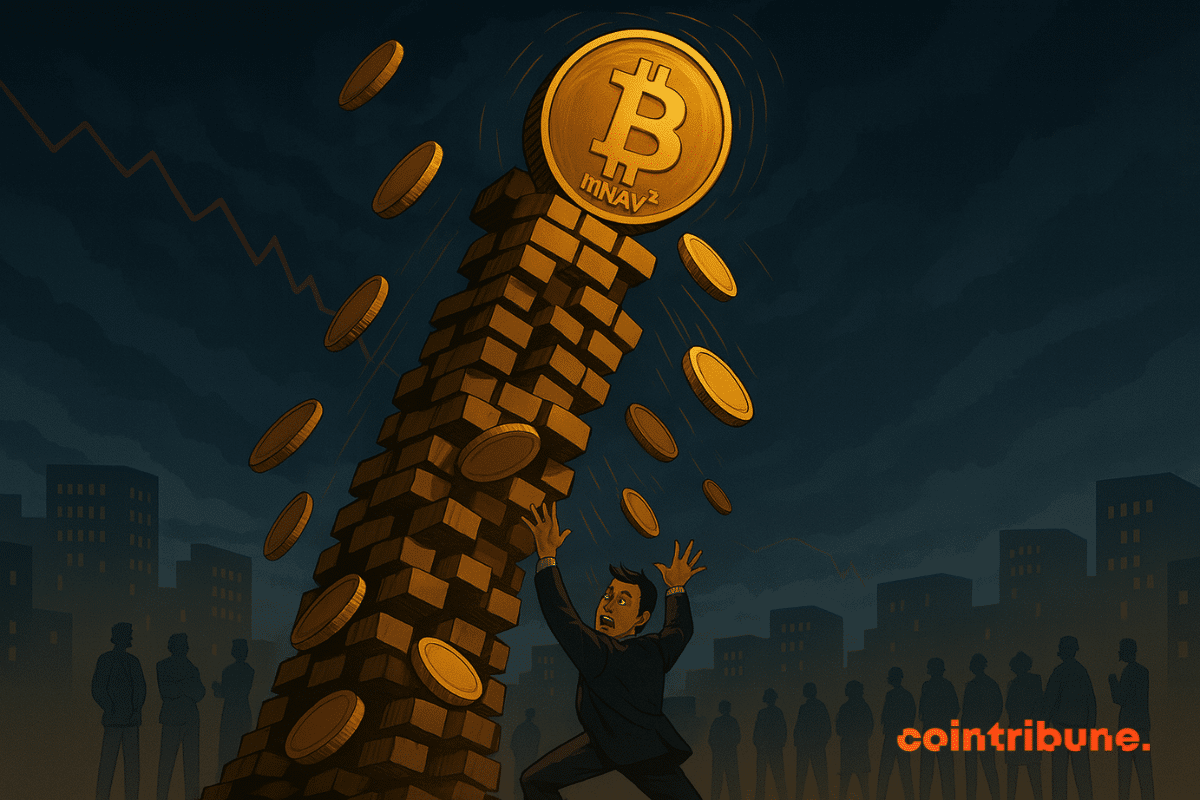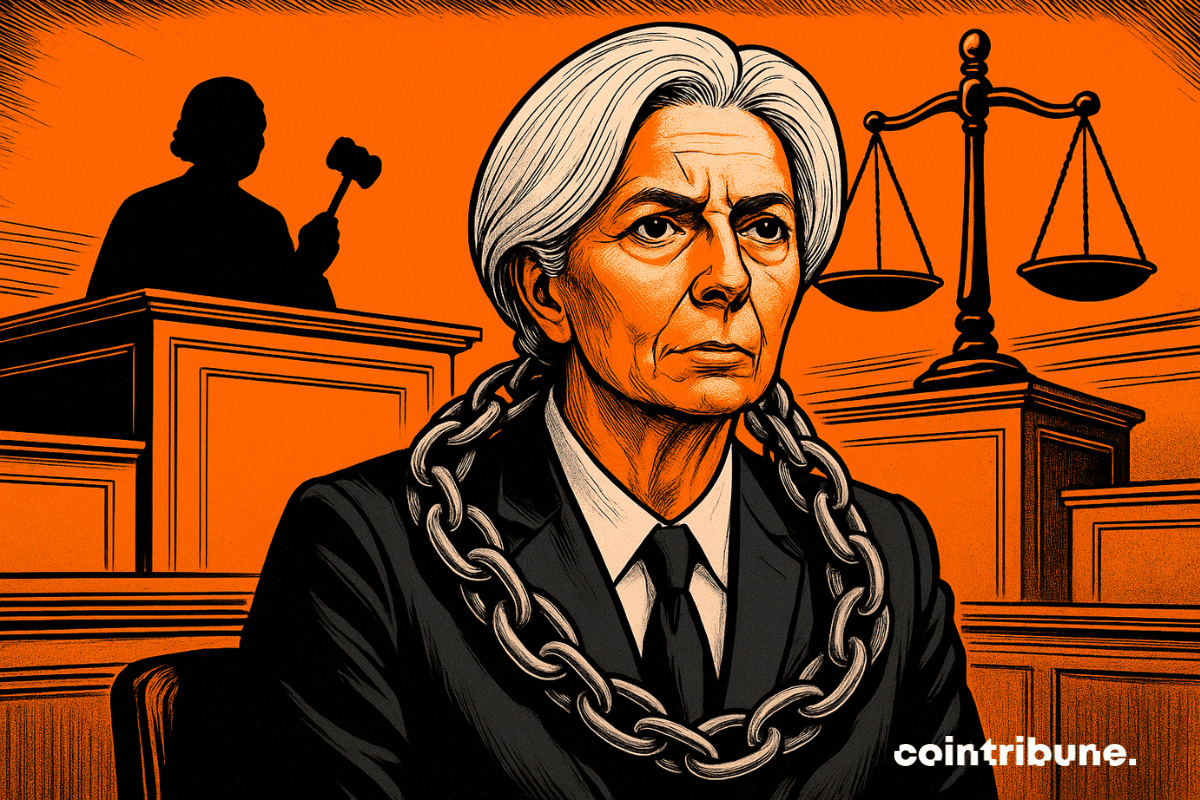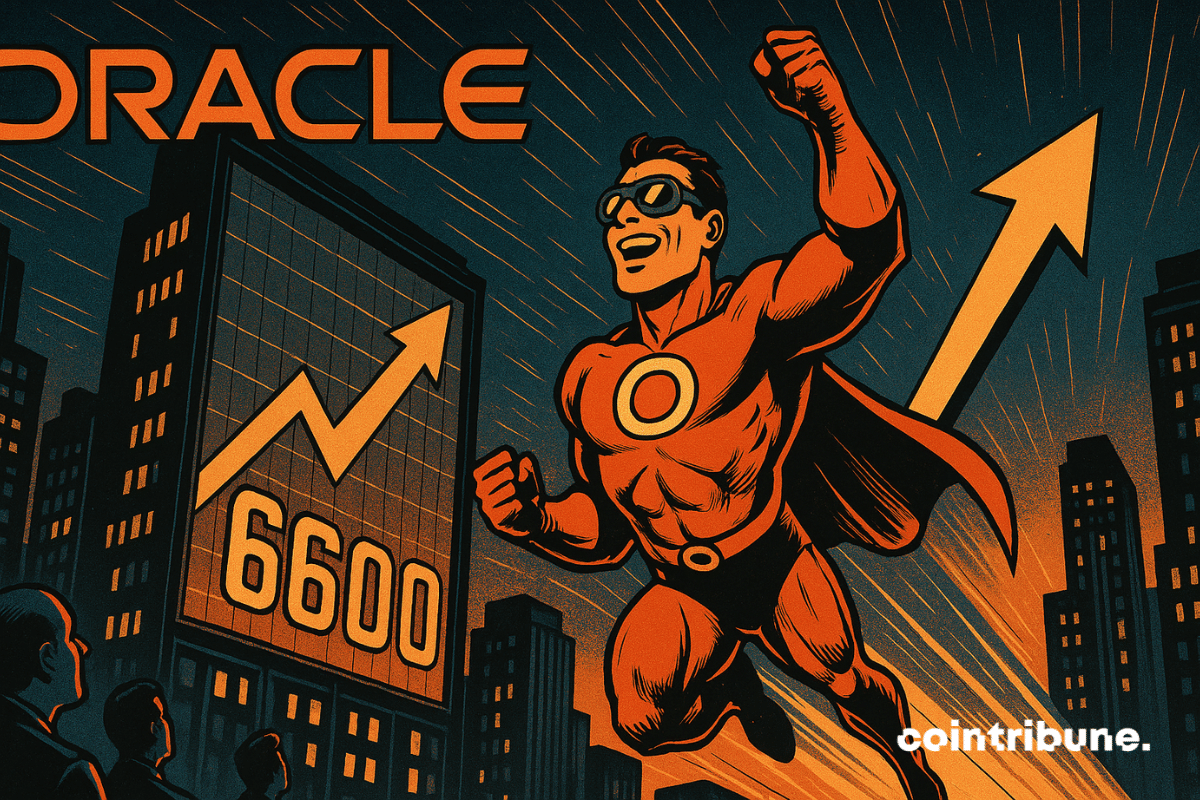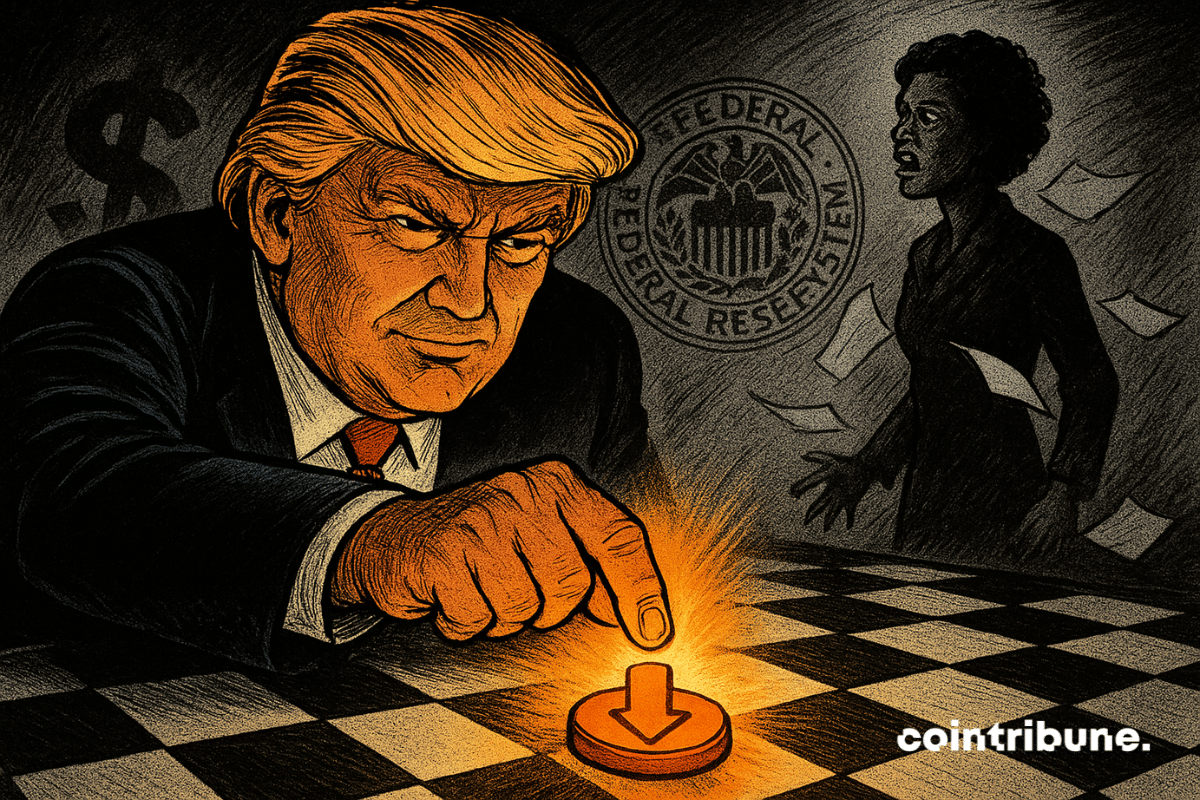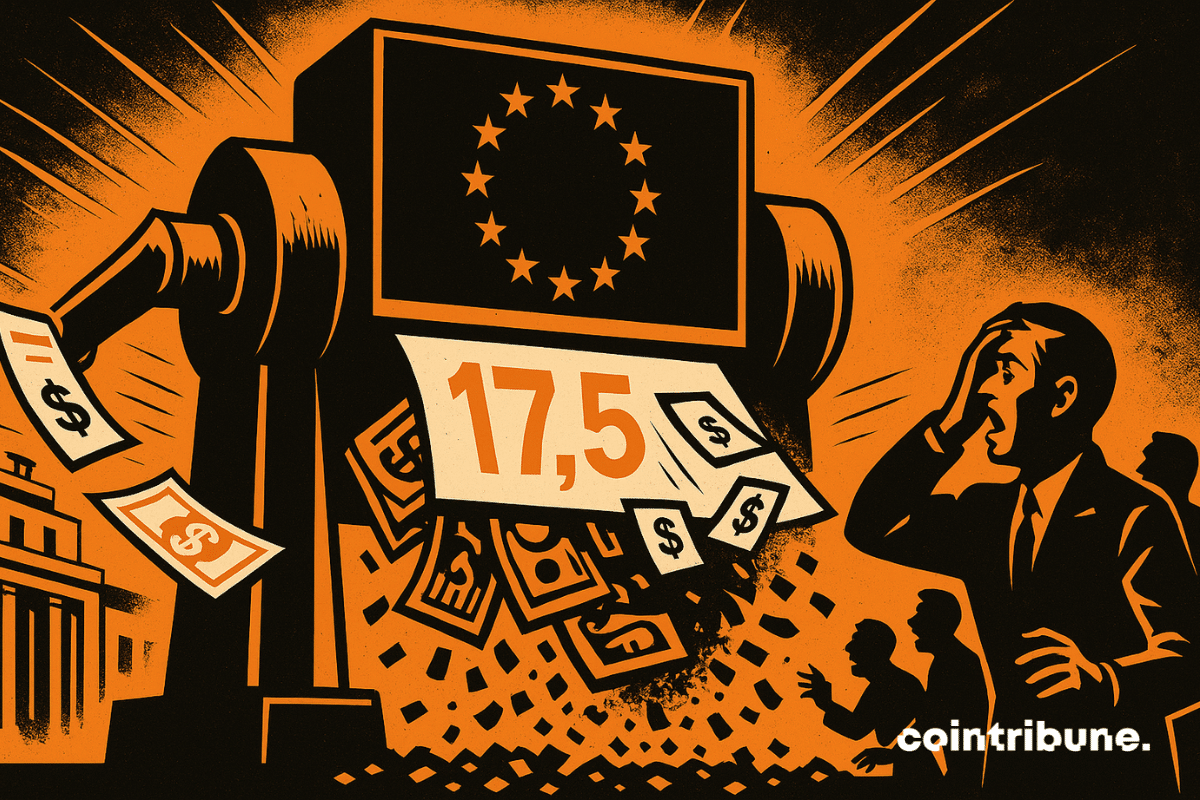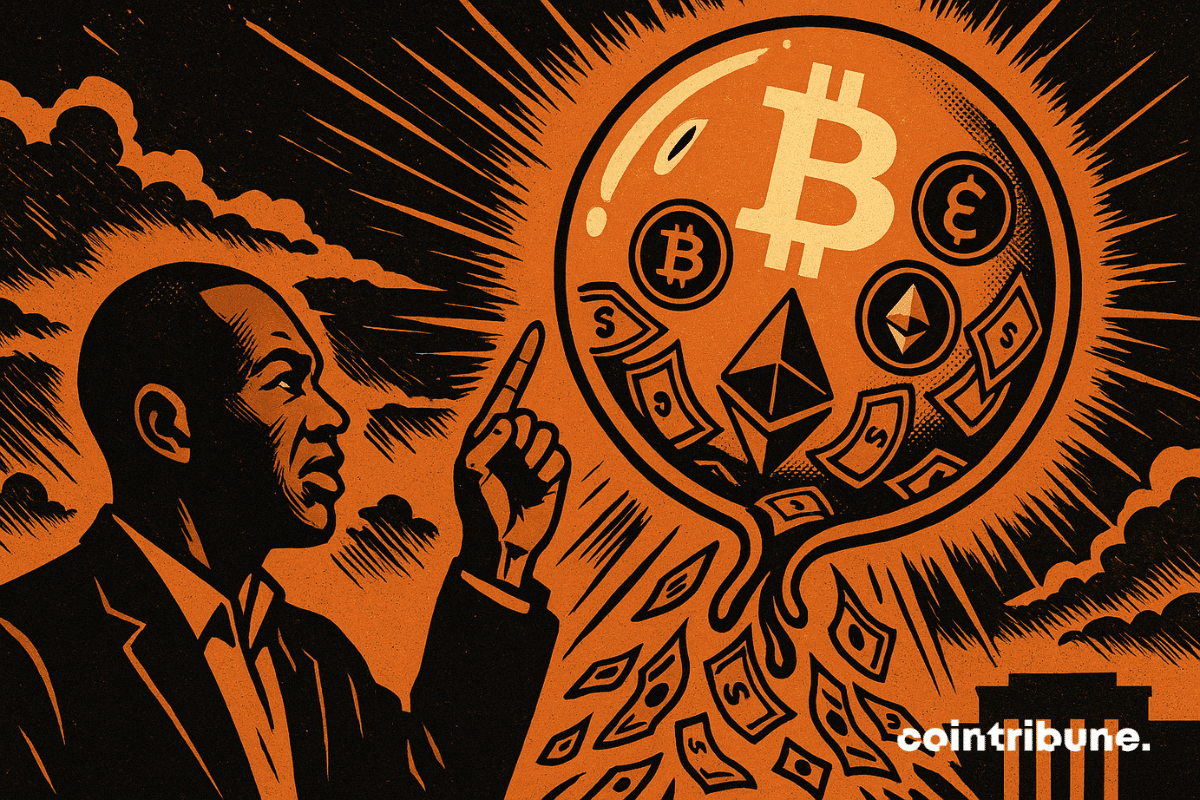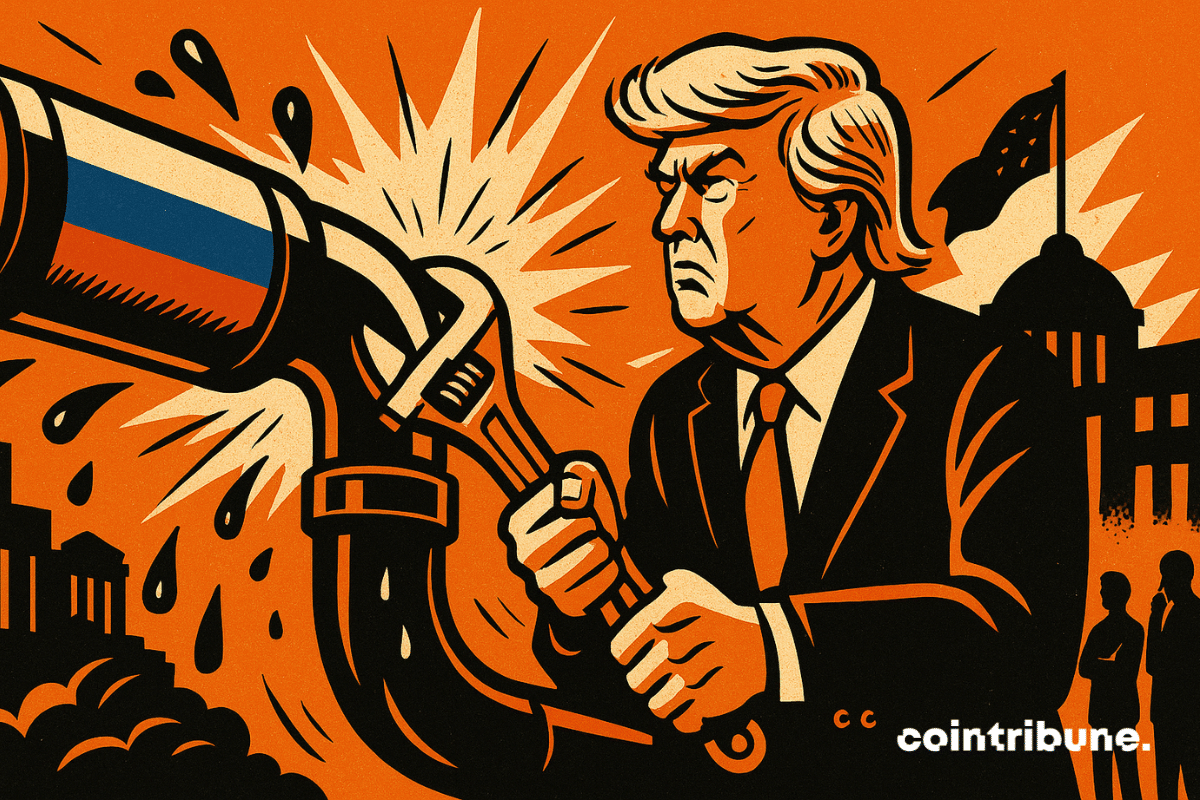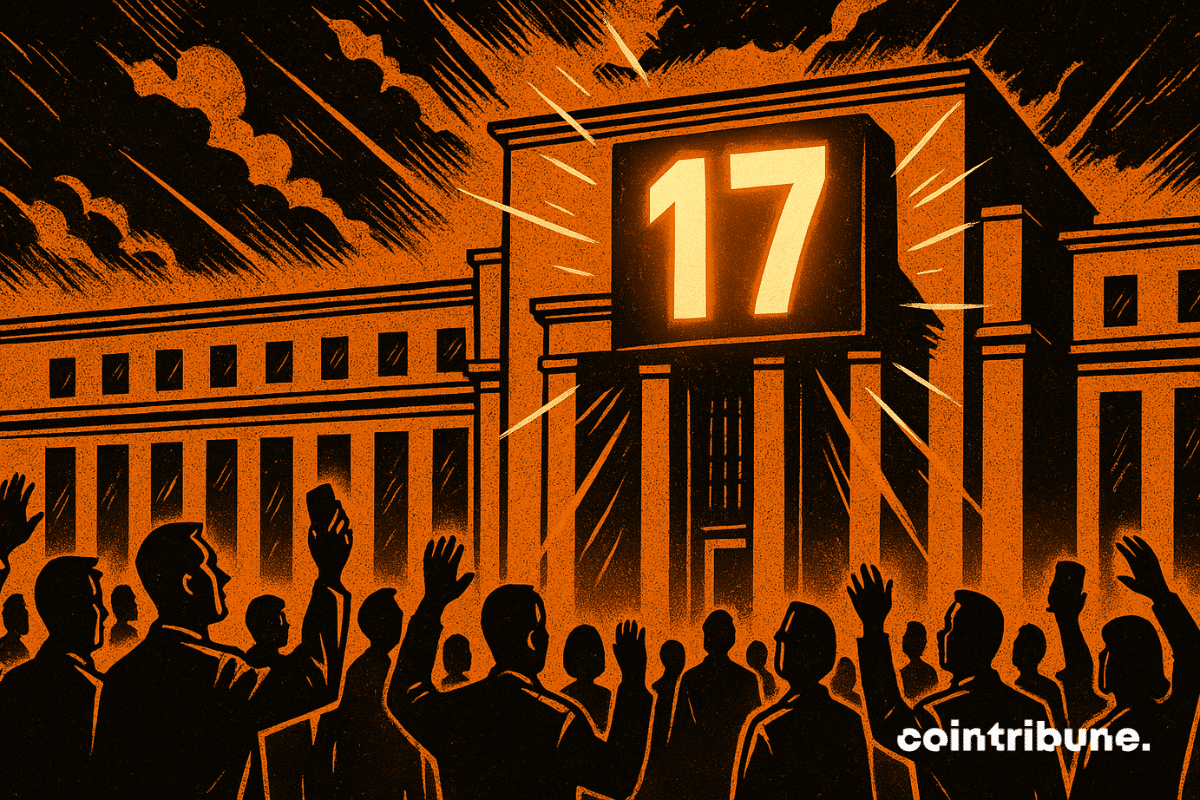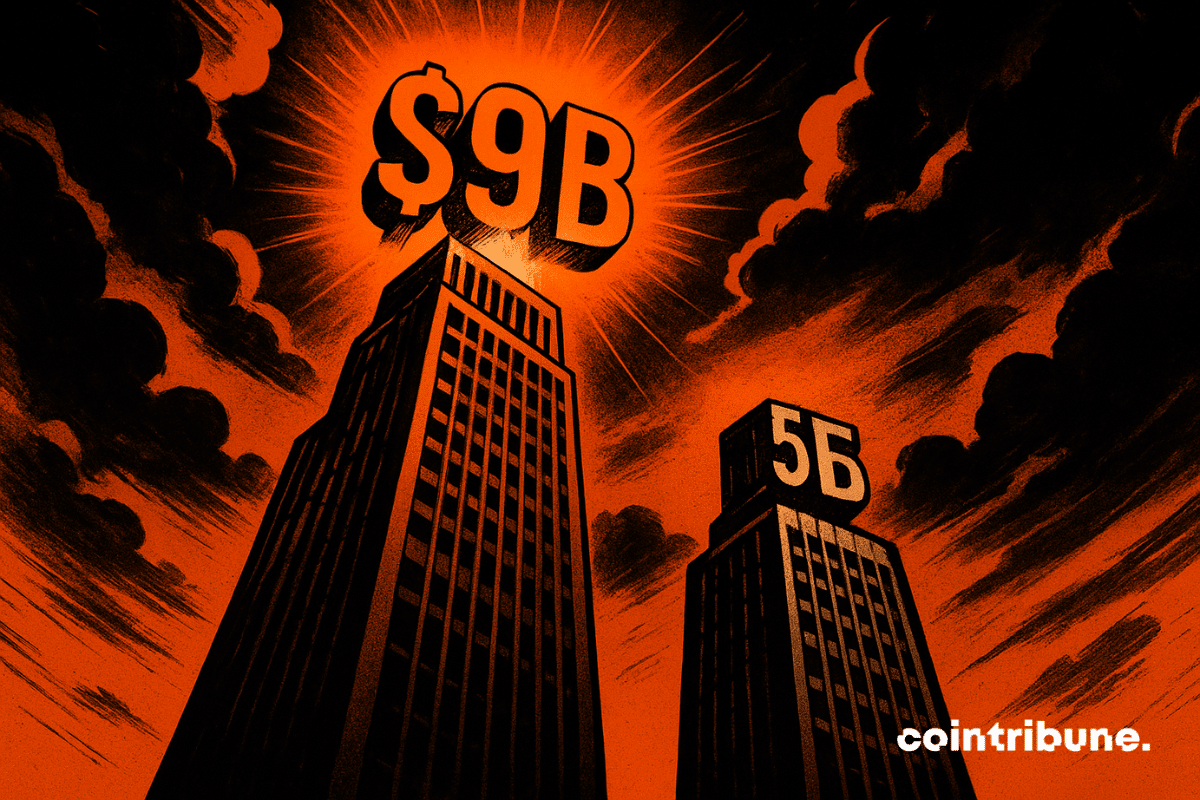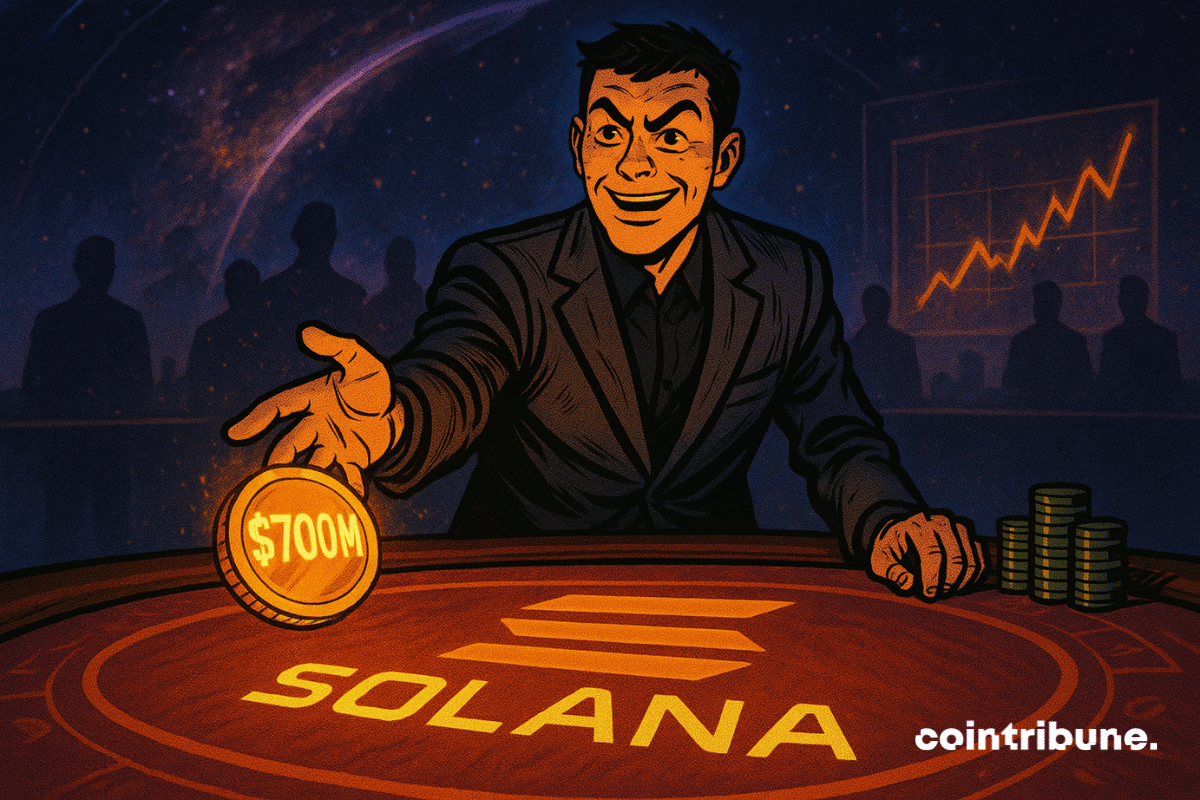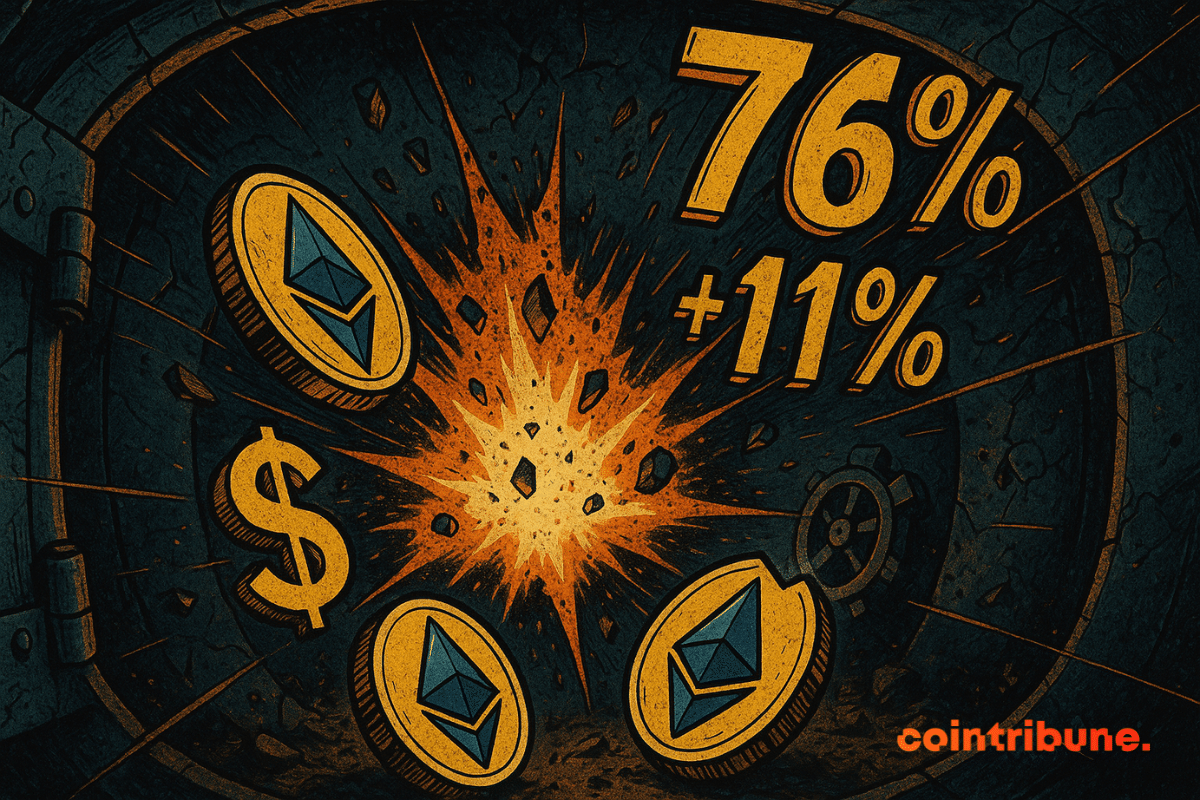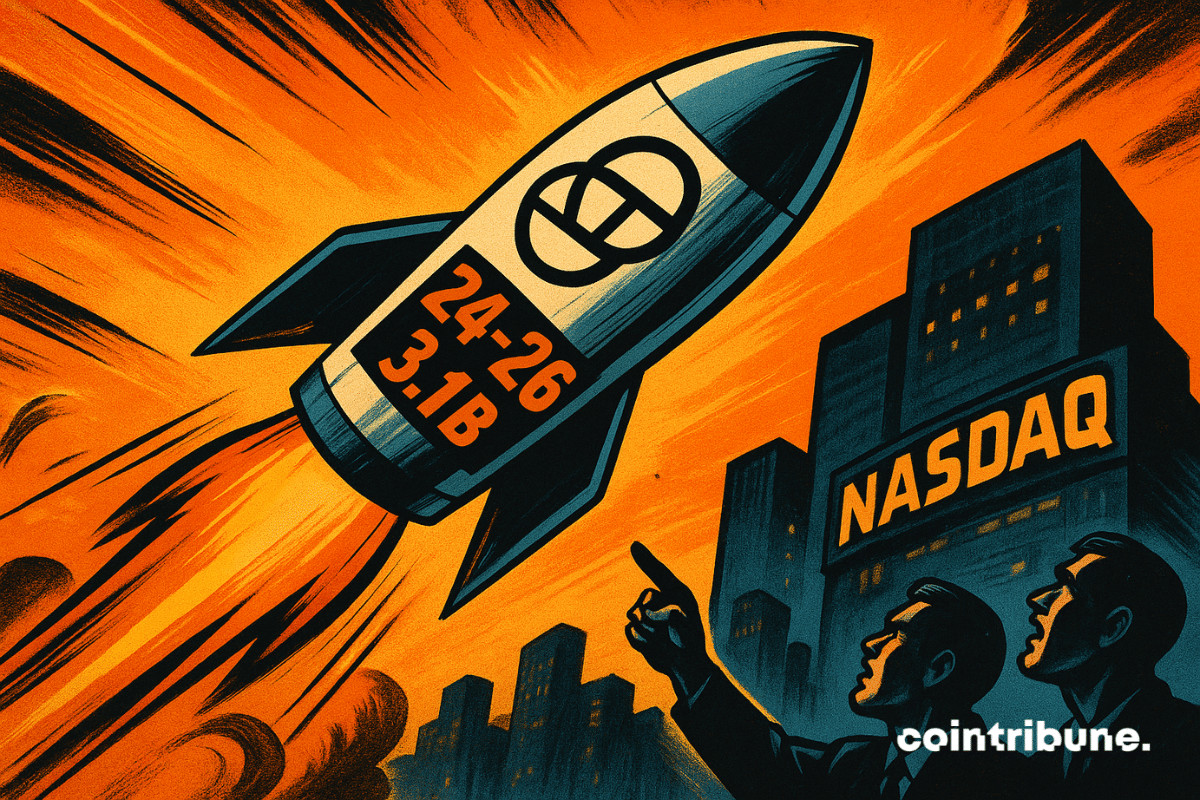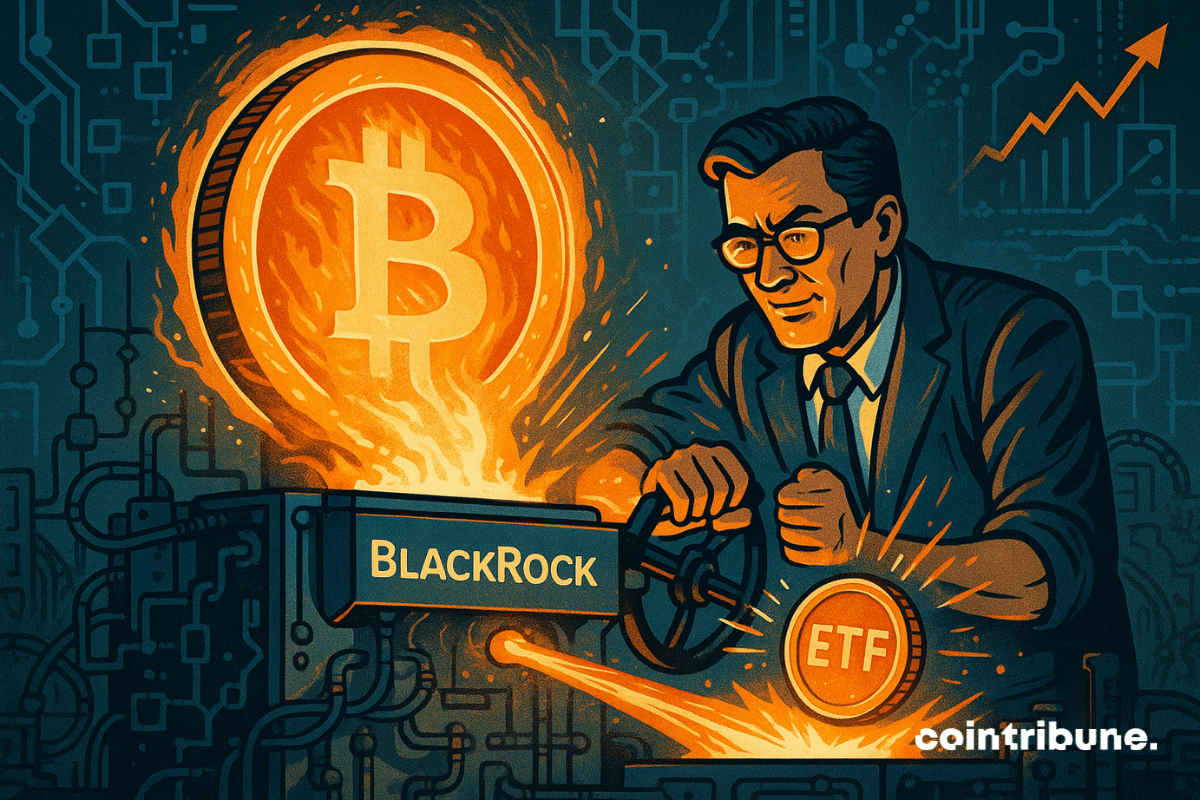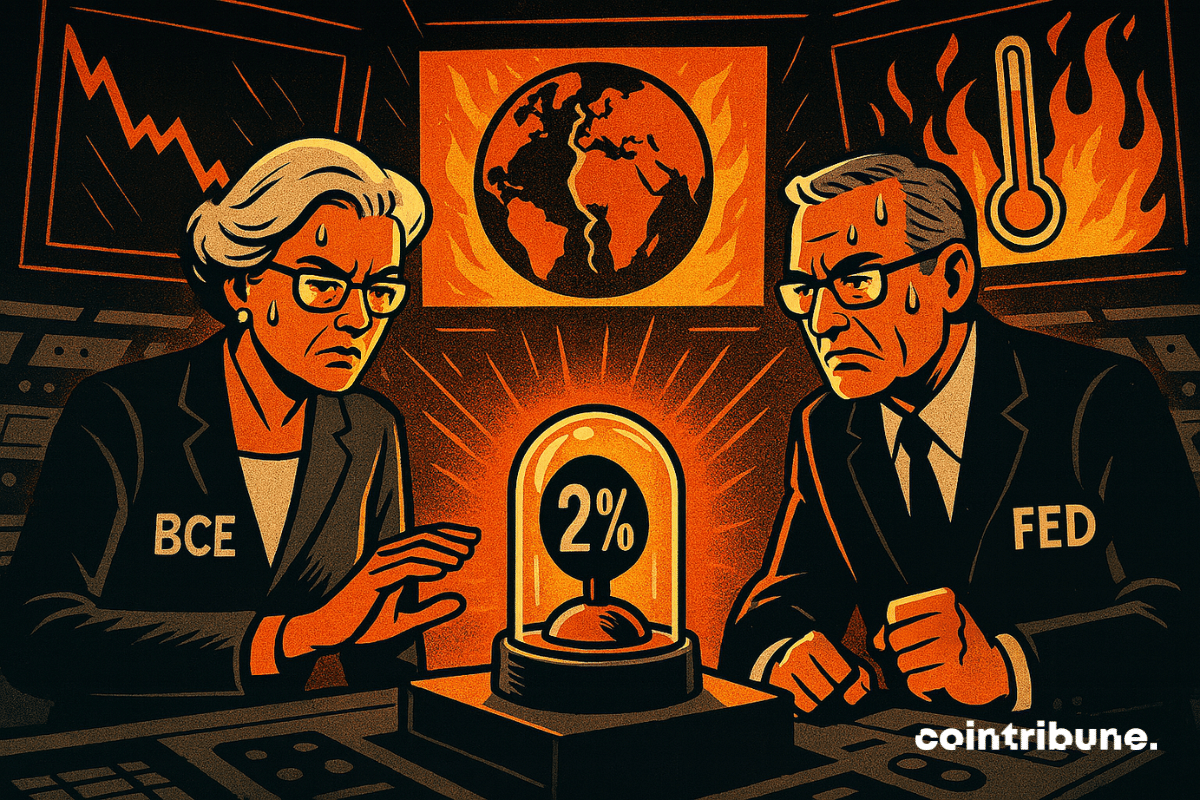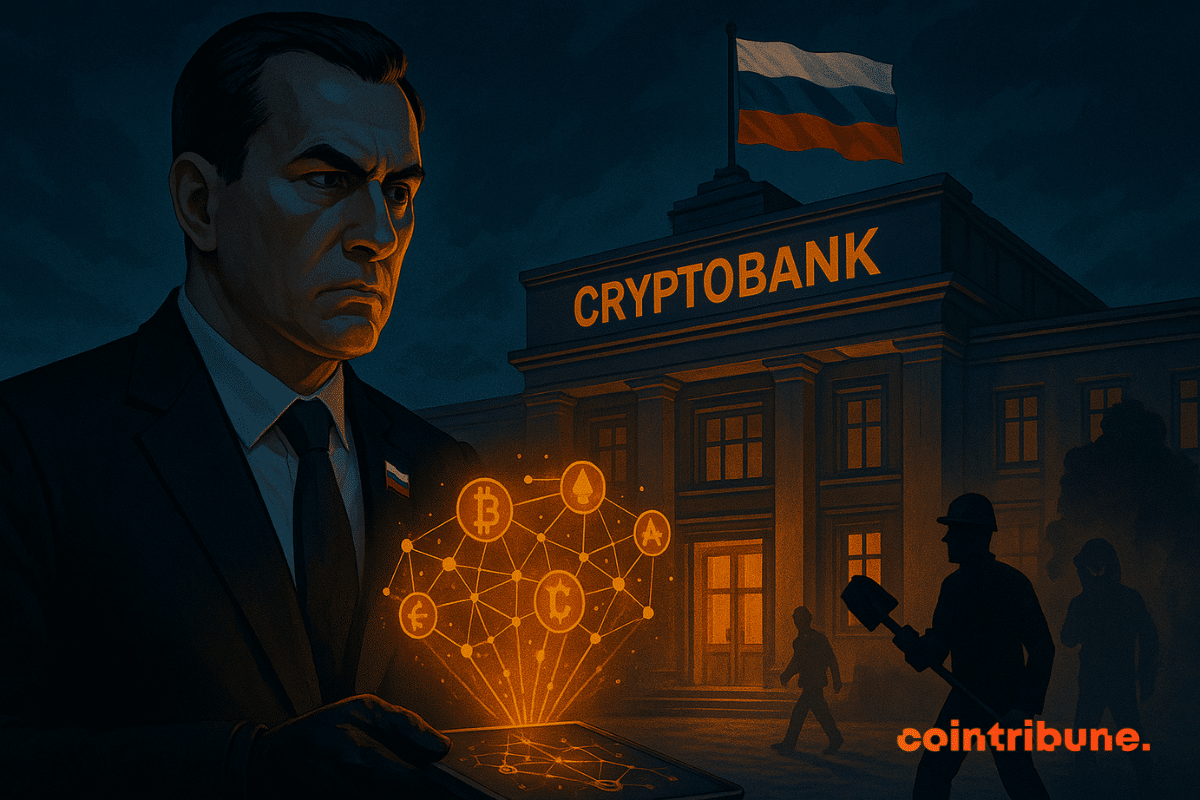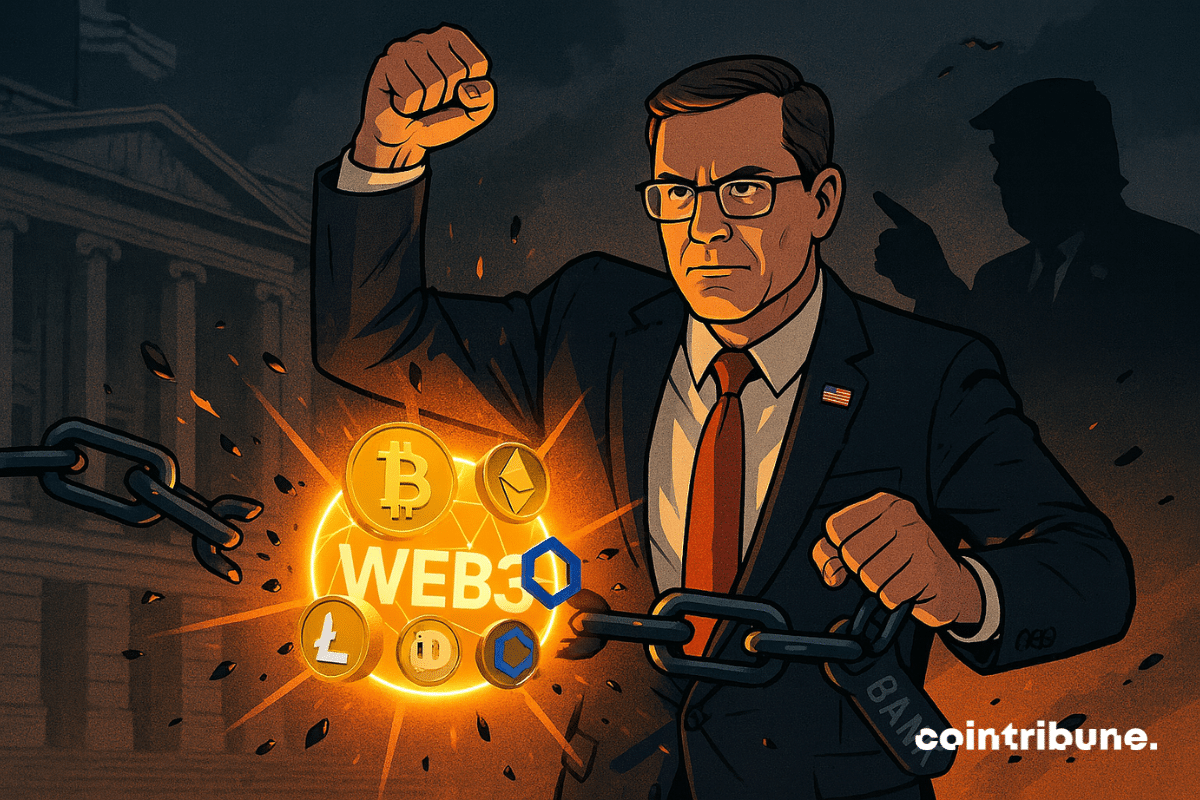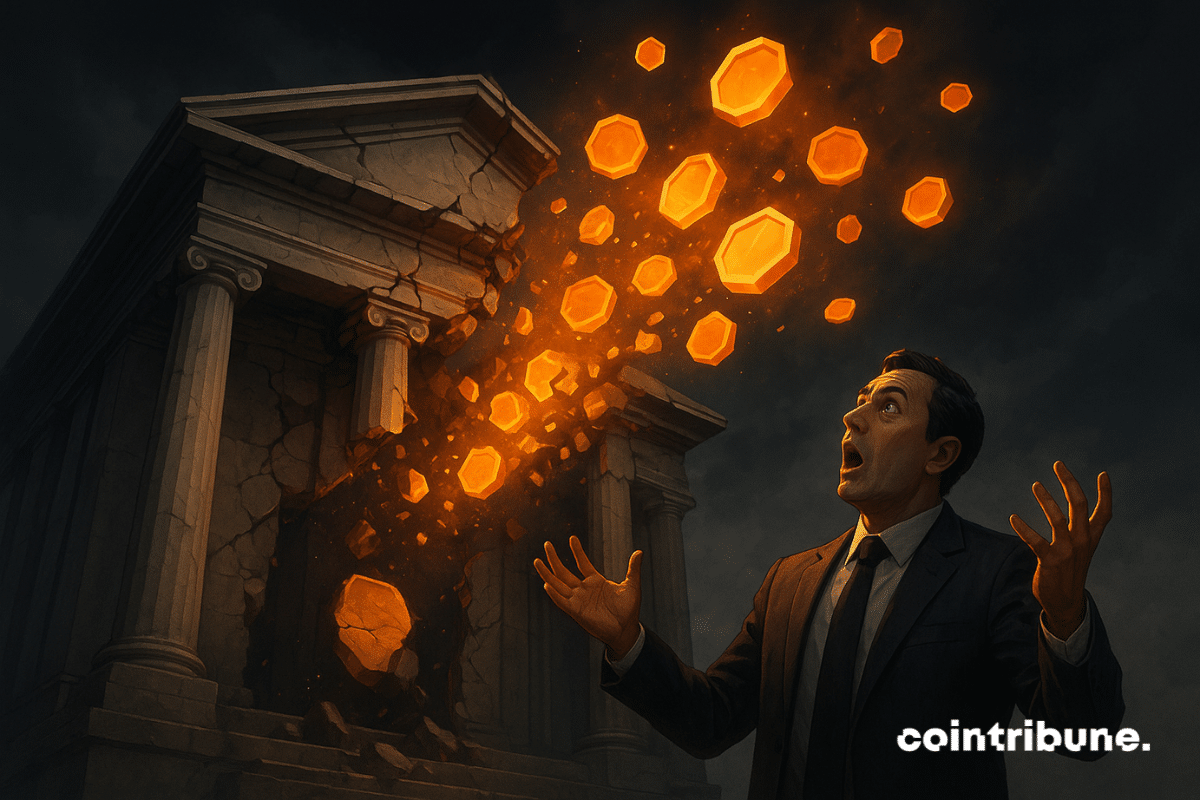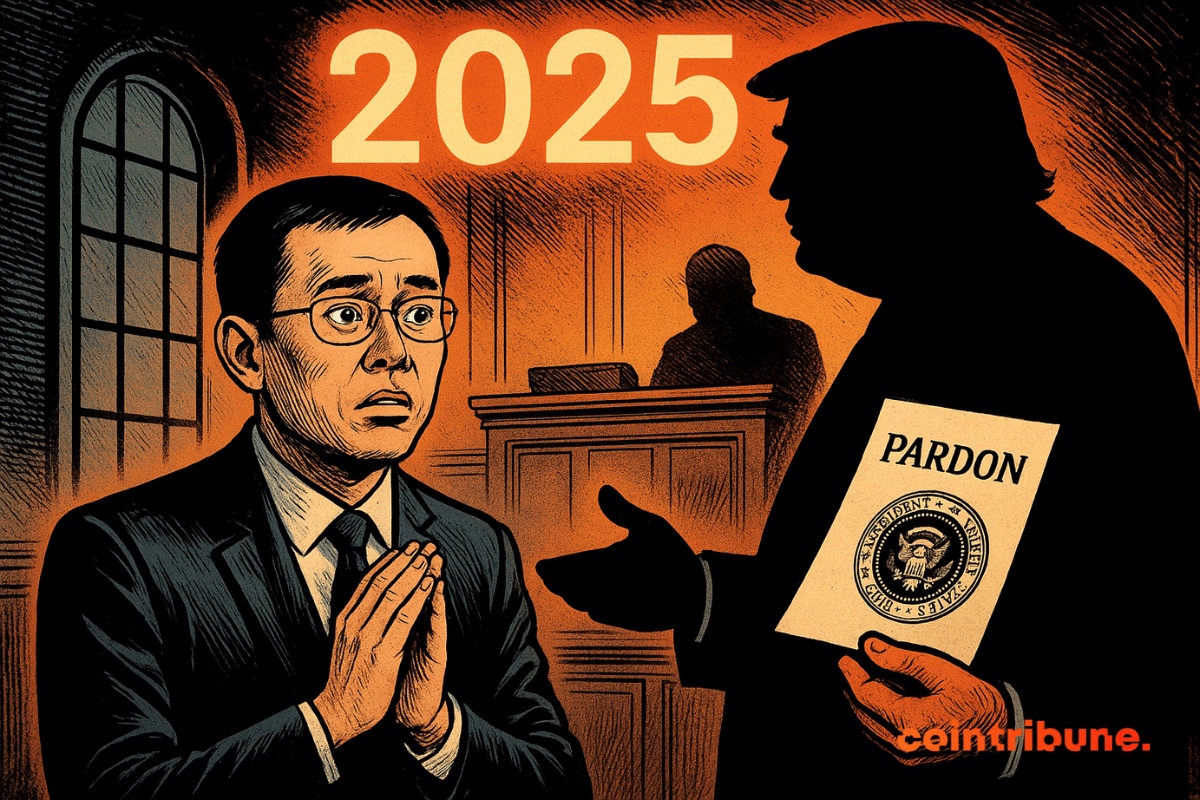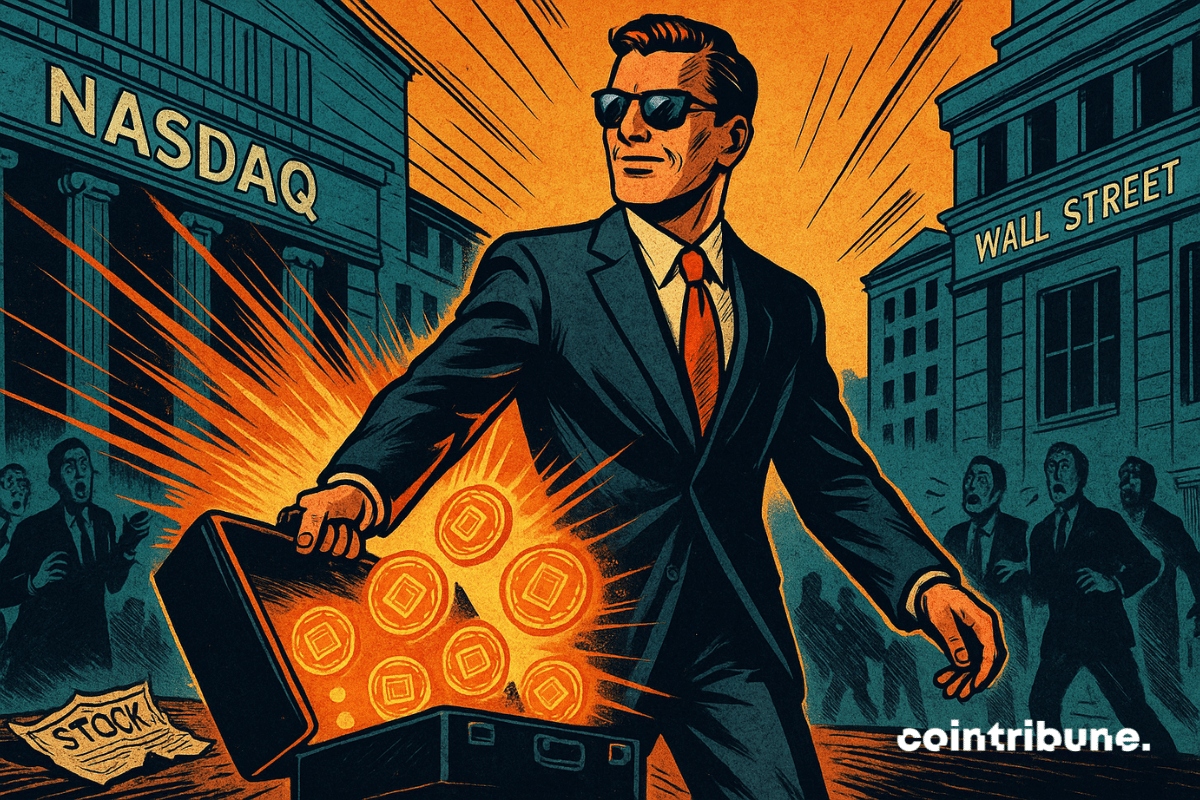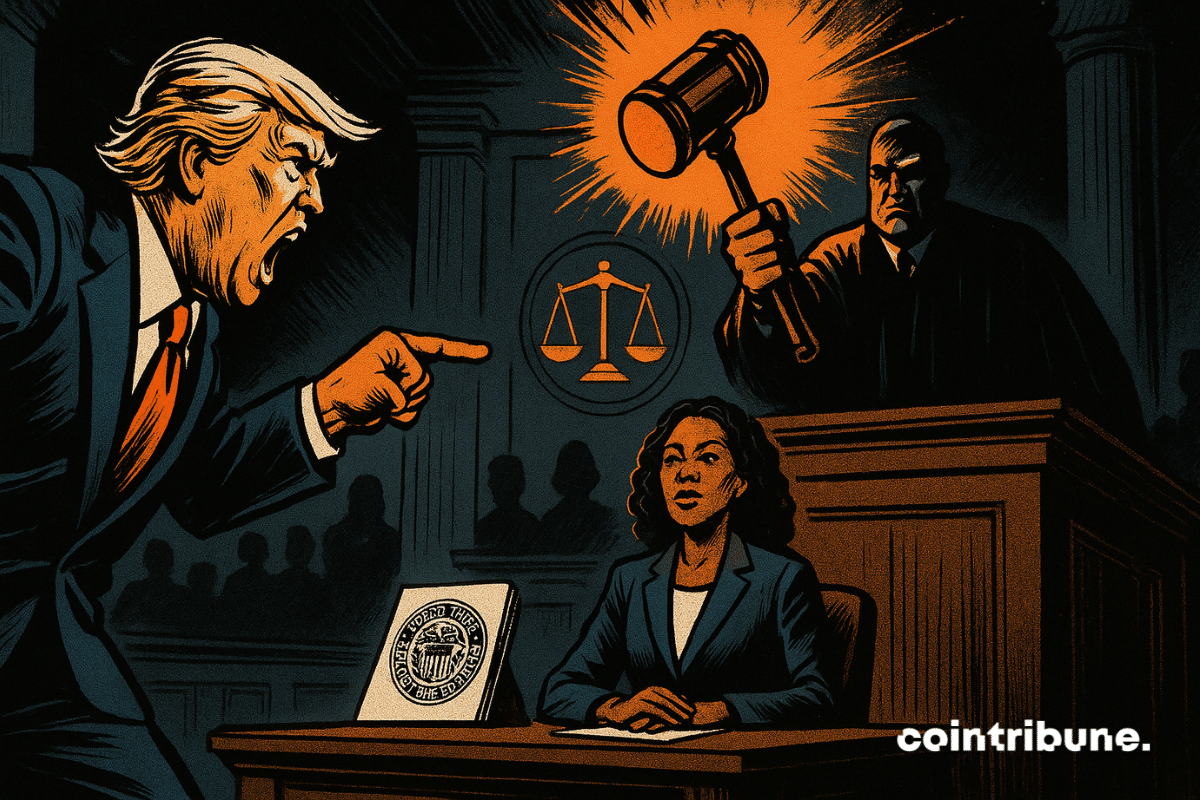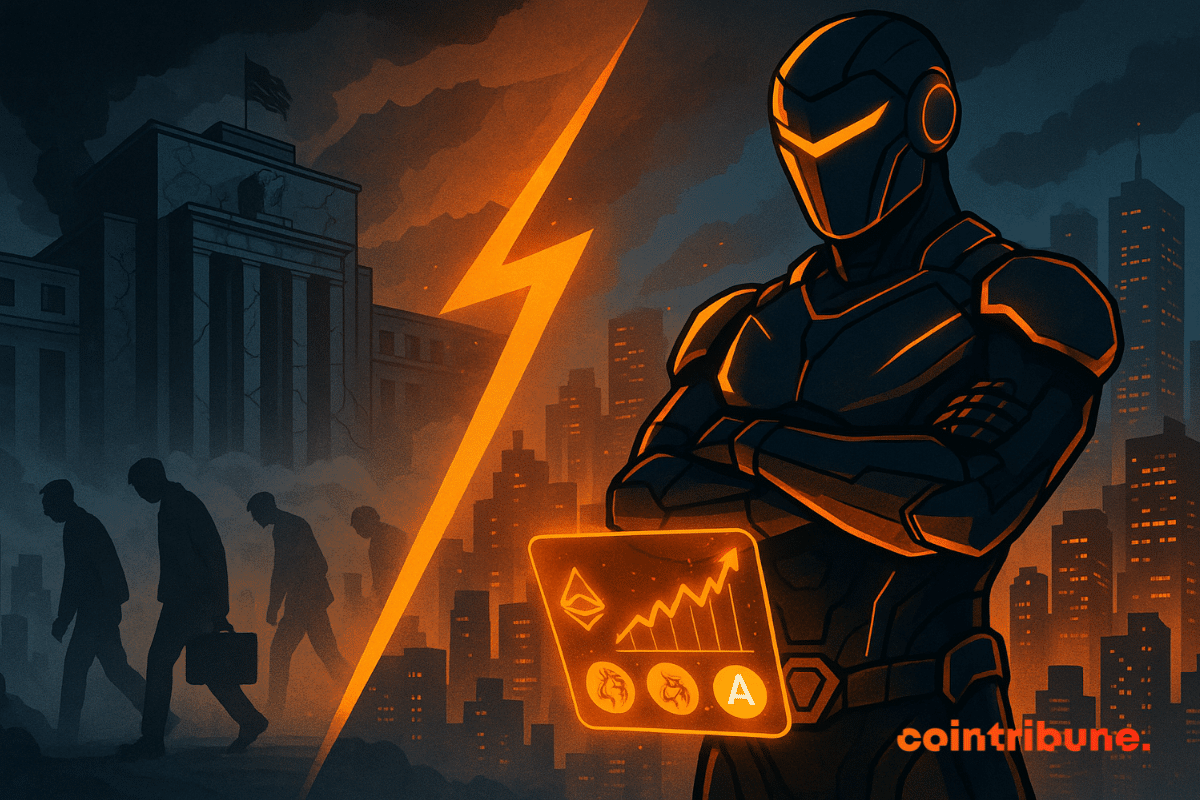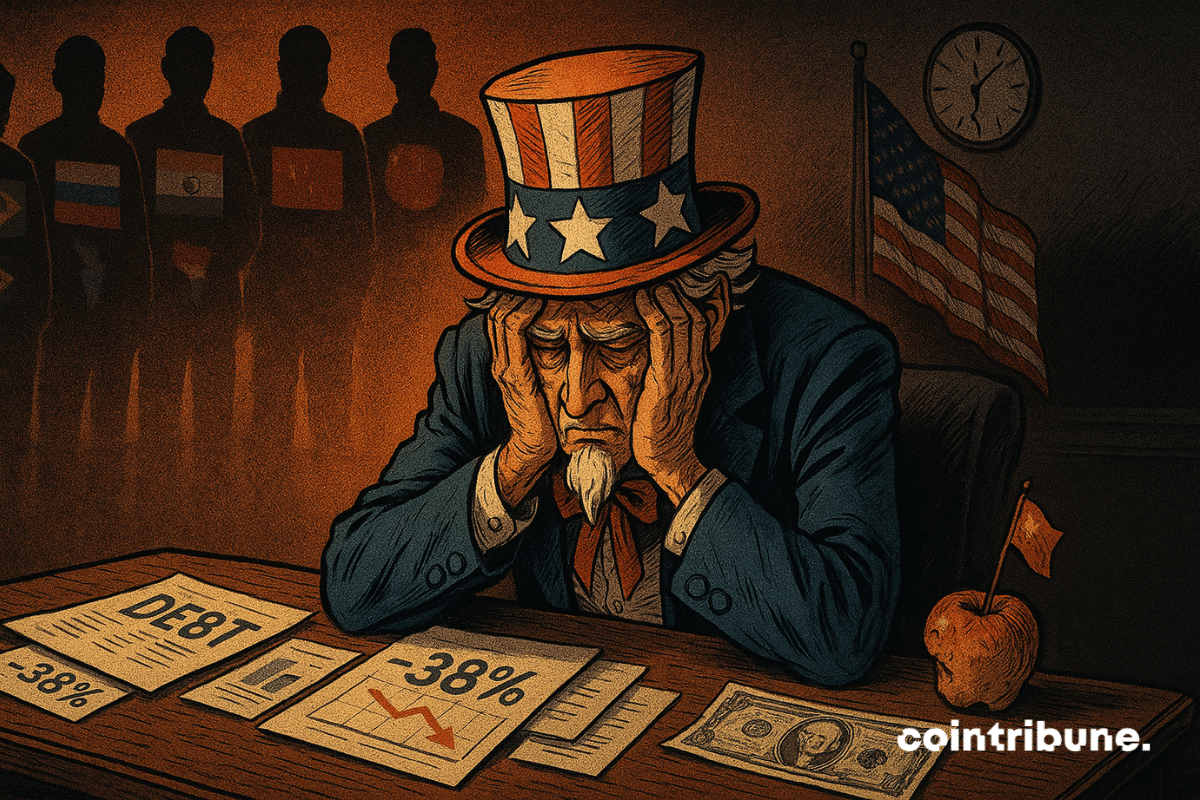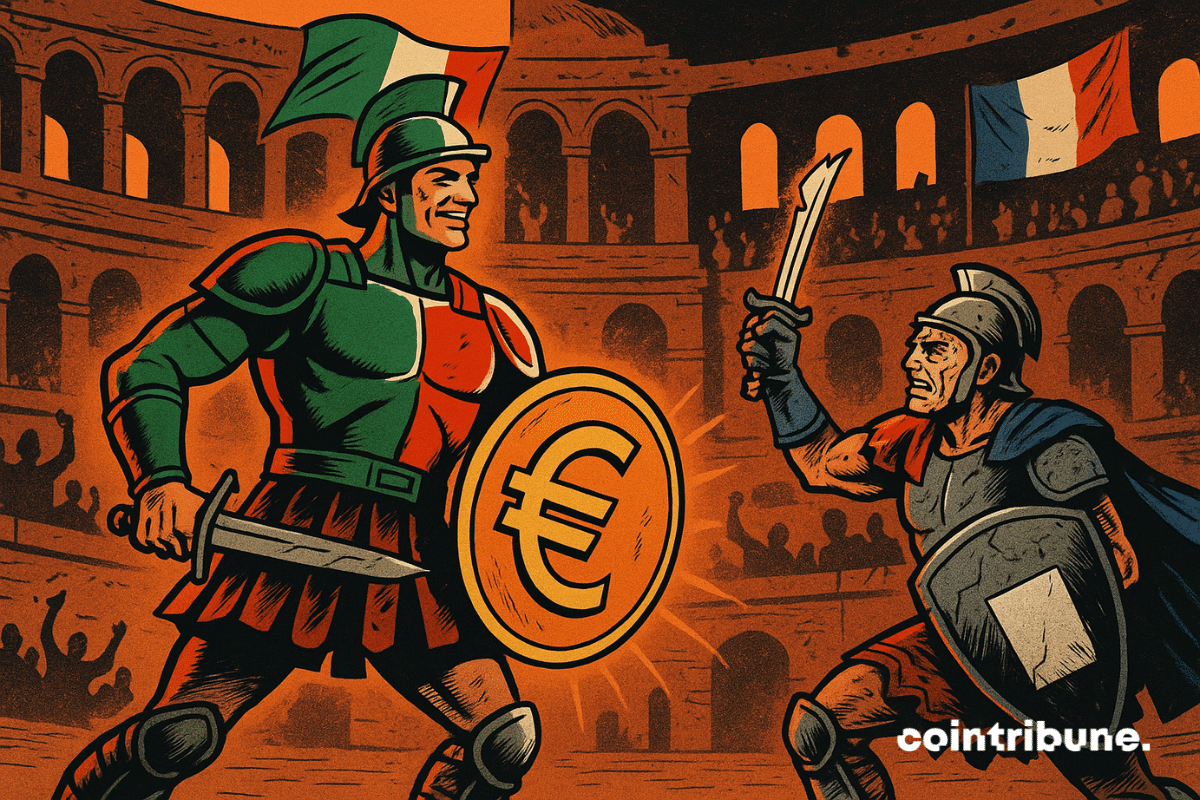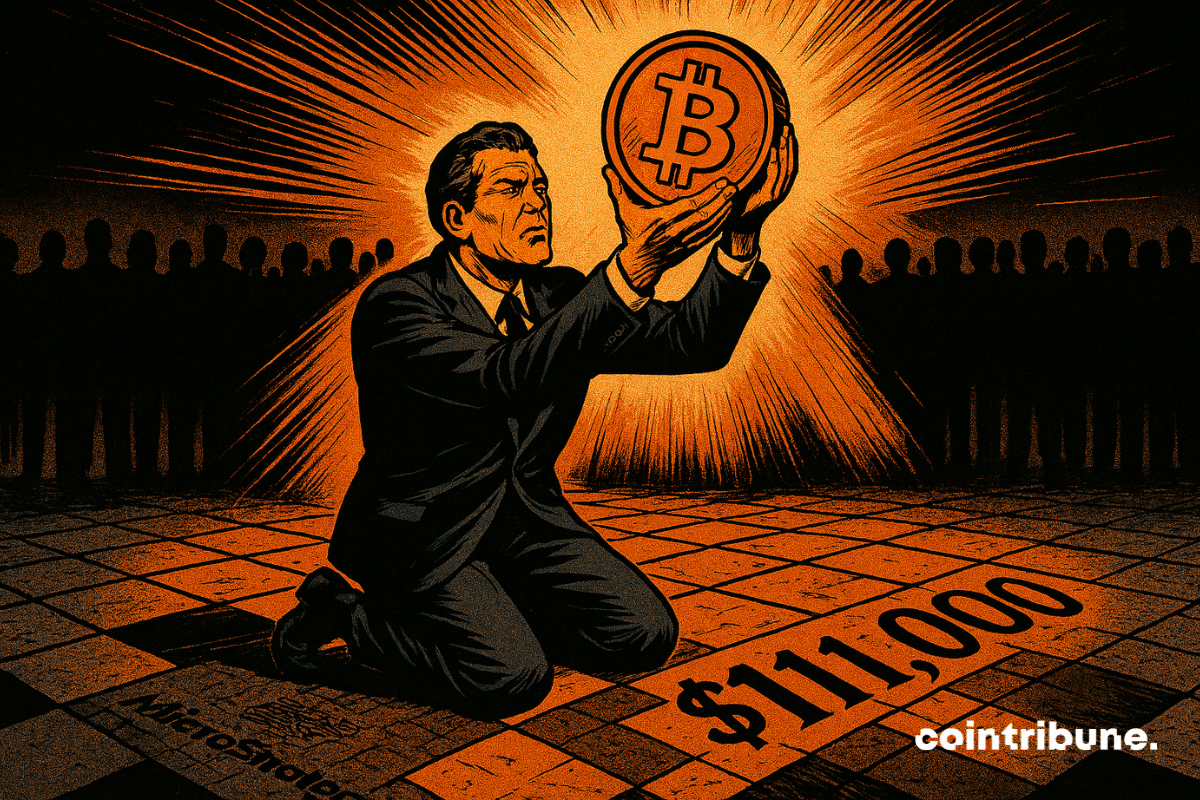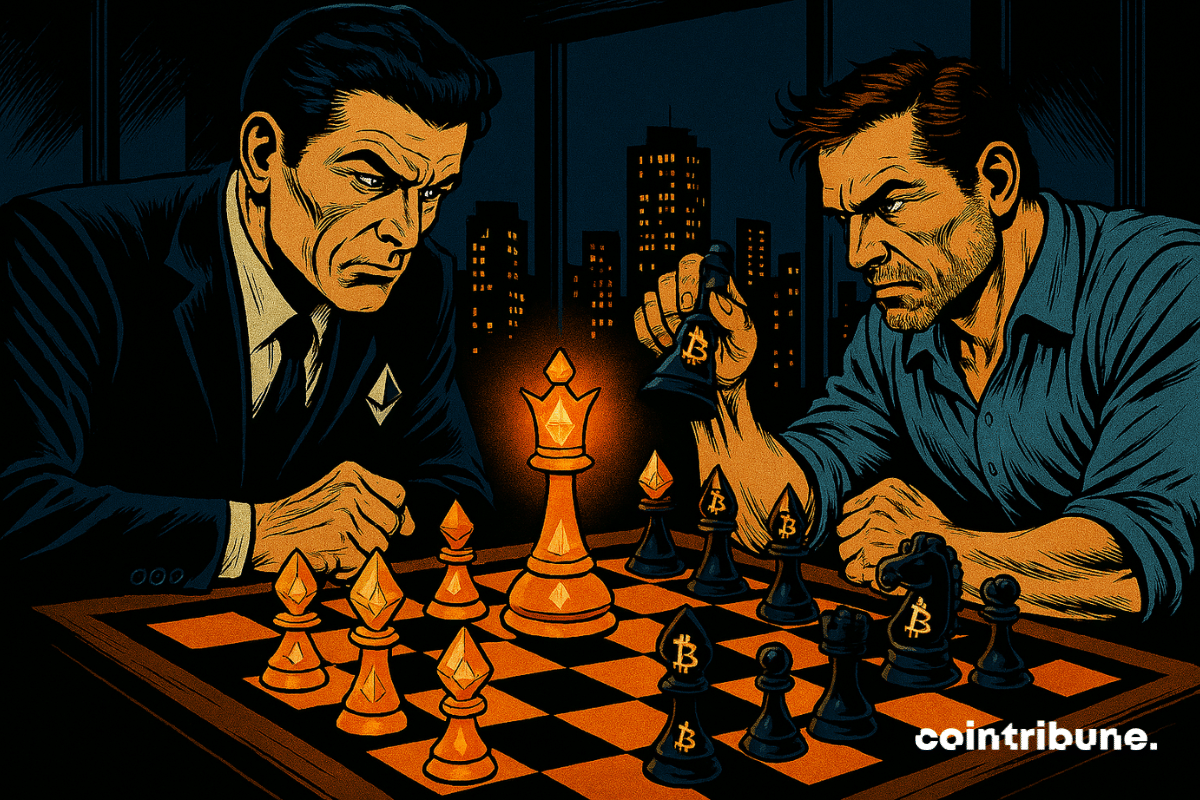Nakamoto Holdings becomes the symbol of a fatigue in the Bitcoin treasuries model. Discover all the details here!
Finance News
Fitch has downgraded France's sovereign rating from AA- to A+, mainly due to governmental instability and difficulties in reducing the public deficit. This situation reveals the failure of the French government, but also massive interventions by the European Central Bank (ECB).
Tokenized real estate takes on a new dimension with RealT, an innovative platform that disrupts traditional rental investment codes. By fractionating American real estate properties into digital tokens on blockchain, this company based in Florida and Delaware opens the doors of international real estate to all investors, regardless of their financial capacity.
Standard Chartered sounds the alarm: crypto treasury companies, built around the accumulation of Bitcoin, Ethereum, and Solana, face a major crisis. The collapse of the mNAV weakens their business models and signals a consolidation phase where only the strongest players will be able to continue growing.
The US markets celebrated Monday the confirmation of a preliminary agreement between Washington and Beijing regarding the future of TikTok. Oracle, the favorite to acquire the Chinese platform, jumped more than 3% while the S&P 500 crossed the symbolic threshold of 6600 points for the first time.
PayPal plays the magician: a simple link, and hop, your cryptos fly by SMS. But behind the sparkling innovation, who really holds the strings of your digital payments?
Bitcoin wavers, whales sell, Wall Street sulks... and Strategy laughs. The former MicroStrategy continues to fill its vaults, defying volatility and skeptics of a crypto market that is always surprising.
President Donald Trump has renewed his efforts to remove Federal Reserve Governor Lisa Cook just days before the central bank is expected to deliver its first rate cut in nearly a year. The case has turned into a controversial legal battle that is now overlapping with one of the most significant policy decisions in the US economy. As the administration continues with its appeal, new evidence looms to erode its claims and heightens its political and financial stakes.
European regulators are targeting $17.5 billion of cat bonds held in UCITS funds. ESMA considers these securities, exposed to natural disasters, too complex and risky for retail investors. If the European Commission follows this recommendation, a wave of forced sales could shake an already strained market.
While the crypto market stalls, Arthur Hayes tempers the prevailing impatience. The cofounder of BitMEX believes that criticisms directed at bitcoin ignore a fundamental lever: global monetary policy. In a recent interview, he suggests that continued money printing by central banks could extend the crypto bull cycle until 2026. This macroeconomic analysis contrasts with the widespread pessimism and invites investors to reassess their benchmarks.
As the war in Ukraine enters a critical phase, Donald Trump throws a wrench in the diplomatic pond. The American president stated that no new sanctions against Moscow would be taken as long as NATO countries continue to buy Russian oil. This statement exposes the persistent fractures within the Alliance and revives the question of its strategic coherence towards Russia.
This Wednesday, September 17, the US central bank is expected to cut its key interest rate by 25 basis points. A decision already priced in by the markets, but far from trivial, as inflation remains above target and employment slows down. Behind this monetary shift, investors are looking for a signal. Temporary shock or catalyst for a new cycle? From bitcoin to gold, through Wall Street, all assets are watching Jerome Powell’s verdict.
Recent chatters within crypto chat rooms indicate that prediction platforms Polymarket and Kalshi are exploring ways to raise capital, with Polymarket aiming for a higher valuation than Kalshi. Interestingly, this comes as decentralized betting begins to catch the eyes of top firms within the crypto space.
When Galaxy spends 700 million on Solana, it’s no longer poker: it’s the smashing entry of a crypto altcoin into the gilded halls of traditional finance.
Boom of RWA in crypto: +11% in one week. Focus on this revolution led by Ethereum and BlackRock.
Eyes are fixed on the market as many financial firms warm up to go public on Wall Street this week. Among these potential debutants, American crypto exchange Gemini has increased its share price ahead of its initial public offering (IPO) scheduled for Friday.
BlackRock, which has already cashed in with its bitcoin ETF, now dreams of putting its ETFs into blockchain tokens. Markets wonder: digital revolution or financial snake oil?
The ECB freezes its rates, the FED is preparing to cut them... What if, in this monetary ping-pong, it was ultimately the real economy that served as the lost ball?
New project: a crypto bank could be launched in Russia. We deliver all the details in this article.
Trump pushes banks to love crypto. Yesterday demonized, today courted, the Web3 industry settles in the vaults of fiat. But who is really orchestrating this spectacular turnaround?
Real World Assets (RWA) represent one of the most promising evolutions of the crypto ecosystem. By tokenizing traditional physical assets, this sector builds concrete bridges between decentralized finance and the real economy, opening new investment opportunities accessible to all.
Poll results from decentralized betting site Polymarket show that bettors are heavily tipping former Binance CEO Changpeng Zhao (CZ) to be granted a presidential pardon. Following a guilty plea and subsequent application for a pardon, indications suggest that most within the crypto circle expect a favourable ruling from the White House.
Nasdaq has officially filed a request with the SEC to authorize trading of shares and ETPs in tokenized form. A breakthrough that could disrupt Wall Street and accelerate the integration of blockchain into traditional financial markets.
More and more businesses are accumulating bitcoins, but also more and more countries. The latest is Kyrgyzstan, a small Central Asian country.
The showdown between Donald Trump and the American Federal Reserve reaches an unprecedented threshold. On September 9, the federal court suspended the dismissal of Lisa Cook, Fed governor, decided by the American president. A rare decision that highlights the major stake of this conflict: the independence of the central bank against political pressures. Ahead of a strategic meeting on rates, this judicial halt revives the debate on the limits of executive power in conducting monetary policy.
Weaker US jobs data boosts interest in DeFi tokens as market watchers anticipate potential Federal Reserve rate cuts.
As economic tensions intensify between major powers, a dissenting voice challenges the dominant narrative in Washington. According to Boris Kopeikin, chief economist at the Stolypin Institute, the US trade deficit with China is not the result of a BRICS strategy, but rather a structural weakening of the American economy. This interpretation reignites the debate on the root causes of American imbalances in a world undergoing major reconfiguration.
The hierarchy of European sovereign debts has just shifted. On Tuesday, September 9, France borrows at a higher rate than Italy on ten-year bonds. Less than 24 hours after the fall of the Bayrou government, the markets have decided: the French signature is no longer a refuge. This reversal, unprecedented in over a decade, marks a loss of confidence affecting the State's budgetary credibility.
While bitcoin wavers, Michael Saylor forces a smile: he spends 217 million, stacks 638,460 BTC, and transforms Strategy into a financial factory dedicated to cryptos.
Bitcoin attracts bettors, Ethereum seduces bankers, Dogecoin dreams of an ETF and Tether dresses in gold: the crypto circus continues its show, between promises, glitters and persistent doubts.
